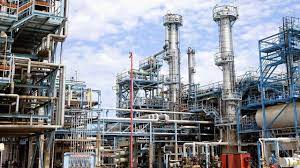On January 15, 2025, the Nigerian National Petroleum Company Limited (NNPCL), the formerly government-owned corporation, which transformed to a limited liability company in July 2022, but still owned by the government, launched a tender seeking potential private company operators to manage the Port Harcourt Refining Company (PHRC).
Rehabilitation work has been ongoing at the refinery for over two years and the NNPC Ltd had pledged to complete Phase One of the project (mechanical completion and flare start-up) of Old Port Harcourt Refinery (Area 5) by 31st December 2023. Expected to commence production in the first quarter of 2024, the refinery will process 60,000bpd, with plans to reach its full capacity of 210,000bpd later in the year.
However, in a public notice on its website and shared on its X page, NNPCL said it is to “Engage reputable and credible Operations & Maintenance (O&M) companies to operate and maintain one of its refineries, Port Harcourt Refining Company (PHRC), to ensure reliability and sustainability towards meeting the nation’s fuel supply and energy security obligations.”
The criteria for the prospective operators include $2bn of minimum turnover since 2019, a current credit rating and experience in refinery management.
- After outcry, Plateau govt pledges to include Muslims in security committee
- 2024: Lagos to widen tax net, targets informal sector
The PHRC, which became operational in 1965, ceased operations five years ago, joining the league of federal government-owned refineries that have been inactive for years. This not only bleeds the nation’s already-stressed foreign exchange reserves, it denies the country of not only cheaper fuel but also results in lost jobs, lack of supporting local businesses, and establishment of downstream industries like petrochemicals.
Attempts at revitalisation of PHRC began on March 17, 2021 when the federal government approved $1.5 billion for the rehabilitation. In April 2021, NNPCL signed a $1.5 billion contract with Italian Marie Technimont for its rehabilitation with the funding billed to come from the NNPC budgetary provisions, internally generated revenue and Afrexim Bank.
Ahead of the contract signing, NNPC Ltd signed a $1.5 billion financing package called ‘Project Eagle’ in August 2020, a prepayment deal with Standard Chartered and backed by African Export-Import Bank (Afrexim) and United Bank for Africa (UBA). But the $1.5 billion loan tag and rehabilitation contract raised eyebrows with critics questioning whether it is a profitable venture considering Nigeria’s precarious fiscal challenges and the refinery’s history of breakdowns and operational inefficiencies.
The rehabilitation went on nonetheless, and on December 21, 2023, NNPC Ltd said it had completed the mechanical phase of the turnaround maintenance at the plant in preparation for the commencement of operations. Then came the announcement two weeks ago that NNPC Ltd was seeking credible operations and maintenance (O&M) companies to operate and maintain the same refinery.
Former Vice President Atiku Abubukar has faulted the plan to hire a third party to manage the refinery after its rehabilitation, arguing that the federal government should have privatised it before the process of the rehabilitation. Regretting the huge debt incurred by Nigeria in the rehabilitation, he posited that it “Would undoubtedly have been better if the NNPC had sold the refinery, pre-rehabilitation, to avoid the burden of debt.”
Daily Trust believes that in the spirit of accountability and good governance, NNPC Ltd needs to be open with Nigerians on what changed from the time they were planning to rehabilitate the refinery and now. Rather than borrow money to repair the refinery and then hand it over to a private company to operate, it would have made more sense to have the operations and maintenance built into the rehabilitation agreement, so that the cost of rehabilitation would be borne by the same company or consortium that would operate and maintain the refinery for a given period, much like a Build–Operate–Transfer (BOT) arrangement, without the need for the federal government to borrow a penny.
As things stand, the NNPC Ltd must pay, one way or another, any company it hires to operate and maintain the refinery, while still paying back both the principal and any interests on the $1.5 billion incurred to rehabilitate the refinery in the first place. This, in our view, is voodoo economics because in the final analysis, the proposed arrangement will leave little by way of benefits for Nigeria and Nigerians of having the refinery operational.
The NNPC Ltd has a duty of delivering on its avowed commitment to keep the refineries up and running and keeping the prices of petroleum products in the country stable in order to give comfort to the citizens and generate more revenue for our country. This is what the full operation of the PHRC and other refineries would engender. And it would be great if this is delivered by the NNPC Ltd itself. If nearly fifty years after incorporation the NNPC Ltd still cannot run a refinery by itself, what then does it really exist for?

 Join Daily Trust WhatsApp Community For Quick Access To News and Happenings Around You.
Join Daily Trust WhatsApp Community For Quick Access To News and Happenings Around You.

